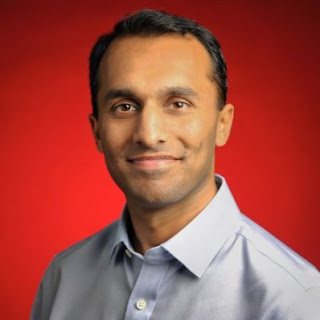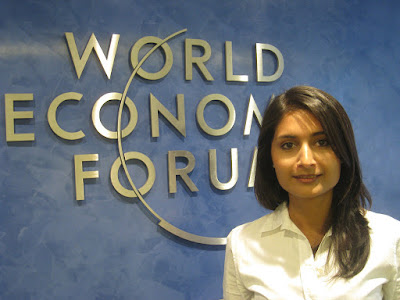Top Silicon Valley Incubator Y-Combinator Picks Pakistani-American as COO
33-year-old Qasar Younis, a Lala Moosa born Harvard-educated Pakistani-American, is the new Chief Operating Officer of Y-Combinator, a spawning ground for emerging tech giants Dropbox, Airbnb, and Stripe in Silicon Valley, according to Fortune Magazine.
Younis was born on a farm in Lal Moosa, Gujarat, Pakistan. He was brought by his parents as a 6-year-old boy to the United States where his parents found work as blue collar workers in the auto industry in Detroit, Michigan.
Younis' start-up TalkBin was offered a $7 million seed round by Y Combinator. However, it was acquired by Google in 2011 even before signing the seed-round term sheet. Younis joined the Google Maps team where he worked to bring local businesses onboard them. He stayed there for three and a half years.
Y Combinator is set to graduate 222 startups, including Pakistani start-up Markhor, this year. There are currently 7000 startups vying for 106 spots in the program, according to ProPakistani.pk. Markhor, co-founded by Waqas Ali and Sidra Qasim is the first Pakistani company based in Pakistan to be accepted into Y Combinator as a part of the Summer 2015 class, according to Tech Crunch. Markhor launched a Kickstarter campaign that brought in over $107,000 in seed money from 508 backers in two months.
Silicon Valley is home to 12,000 to 15,000 Pakistani Americans. Thousands of them are working at Apple, Cisco, Google, Intel, Oracle and hundreds of other high-tech companies from small start-ups to large Fortune 500 corporations. Pakistani-Americans are contributing to what Erik Brynjolfsson and Andrew McAfee describe as "The Second Machine Age" in a recent book with the same title.
Here's a video of a recent presentation I made at University of Chicago Booth School of Business on Pakistani-Americans in Silicon Valley:
Talk by Riaz Haq for Pakistan Club Chicago May... by urduonair
http://www.dailymotion.com/video/x1t1orh_talk-by-riaz-haq-for-pakistan-club-chicago-may-2014-event_tech
https://www.youtube.com/watch?v=1VZSUo4jH3w
A PDF version of my full presentation at University of Chicago Booth Business School is available on PakAlumni WorldWide
Related Links:
Haq's Musings
Pakistani-Americans in Silicon Valley
Pakistani Diaspora World's 7th Largest
Pakistani-American Population Second Fastest Growing Among Asian-Americans
Organization of Pakistani-American Entrepreneurs
Karachi-born Triple Oscar Winning Graphics Artist
Pakistani-American Ashar Aziz's Fire-eye Goes Public
Two Pakistani-American Silicon Valley Techs Among Top 5 VC Deals
Pakistani-American's Game-Changing Vision
Minorities Are Majority in Silicon Valley
US Promoting Venture Capital & Private Equity in Pakistan
Pakistani-American Population Growth Second Fastest Among Asian-Americans
Edible Arrangements: Pakistani-American's Success Story
 |
| Qasar Younis (Source: Linked-In) |
Younis' start-up TalkBin was offered a $7 million seed round by Y Combinator. However, it was acquired by Google in 2011 even before signing the seed-round term sheet. Younis joined the Google Maps team where he worked to bring local businesses onboard them. He stayed there for three and a half years.
Y Combinator is set to graduate 222 startups, including Pakistani start-up Markhor, this year. There are currently 7000 startups vying for 106 spots in the program, according to ProPakistani.pk. Markhor, co-founded by Waqas Ali and Sidra Qasim is the first Pakistani company based in Pakistan to be accepted into Y Combinator as a part of the Summer 2015 class, according to Tech Crunch. Markhor launched a Kickstarter campaign that brought in over $107,000 in seed money from 508 backers in two months.
Silicon Valley is home to 12,000 to 15,000 Pakistani Americans. Thousands of them are working at Apple, Cisco, Google, Intel, Oracle and hundreds of other high-tech companies from small start-ups to large Fortune 500 corporations. Pakistani-Americans are contributing to what Erik Brynjolfsson and Andrew McAfee describe as "The Second Machine Age" in a recent book with the same title.
Pakistani-American entrepreneurs, advisers, mentors, venture capitalists, investment bankers, accountants and lawyers make up a growing ecosystem in Silicon Valley. Dozens of Pakistani-American founded start-ups have been funded by top venture capital firms. Many such companies have either been acquired in M&A deals or gone public by offering shares for sale at major stock exchanges. Organization of Pakistani Entrepreneurs (OPEN) has become a de facto platform for networking among Pakistani-American entrepreneurs in Silicon Valley. It holds an annual event called OPEN Forum which attracts over 500 attendees.
Talk by Riaz Haq for Pakistan Club Chicago May... by urduonair
http://www.dailymotion.com/video/x1t1orh_talk-by-riaz-haq-for-pakistan-club-chicago-may-2014-event_tech
https://www.youtube.com/watch?v=1VZSUo4jH3w
A PDF version of my full presentation at University of Chicago Booth Business School is available on PakAlumni WorldWide
Related Links:
Haq's Musings
Pakistani-Americans in Silicon Valley
Pakistani Diaspora World's 7th Largest
Pakistani-American Population Second Fastest Growing Among Asian-Americans
Organization of Pakistani-American Entrepreneurs
Karachi-born Triple Oscar Winning Graphics Artist
Pakistani-American Ashar Aziz's Fire-eye Goes Public
Two Pakistani-American Silicon Valley Techs Among Top 5 VC Deals
Pakistani-American's Game-Changing Vision
Minorities Are Majority in Silicon Valley
US Promoting Venture Capital & Private Equity in Pakistan
Pakistani-American Population Growth Second Fastest Among Asian-Americans
Edible Arrangements: Pakistani-American's Success Story



Comments
1. India (720,000) 2. China (273,000) 3. Mexico (119,000), 4. Vietnam (100,000), 5. Philippines (87,000), 6. South Korea (84,000), 7. Canada (56,000), 8. Taiwan (53,000), 9. Russia (45,000), 10. Pakistan (35,000).
https://www.americanimmigrationcouncil.org/research/foreign-born-stem-workers-united-states
Since 2000, the share of foreign-born workers in the STEM workforce has increased by more than 40 percent.
The share of foreign-born workers in STEM occupations has grown significantly in recent years. As shown in Table 2, the number of foreign-born STEM workers increased from 1.2 million (16.4 percent of the STEM workforce) in 2000 to 2.5 million (23.1 percent of the STEM workforce) in 2019.
Because immigrant STEM workers tend to possess skills that complement those of their U.S.-born co-workers, the presence of immigrants in the workplace increases the productivity (and therefore the wages) of all workers. Moreover, innovation by immigrant workers increases the revenue of the firms in which they work, which enables employers to hire more workers. The overall share of workers who are foreign-born and hold advanced degrees from either a U.S. or a foreign university is also associated with higher levels of employment among U.S.-born workers. A 10 percent increase in the share of foreign-born workers with advanced degrees working in STEM occupations boosted the U.S.-born employment rate by 0.03 percent. This means that every additional 100 foreign-born workers with an advanced degree working in a STEM occupation creates roughly 86 jobs for U.S. workers.